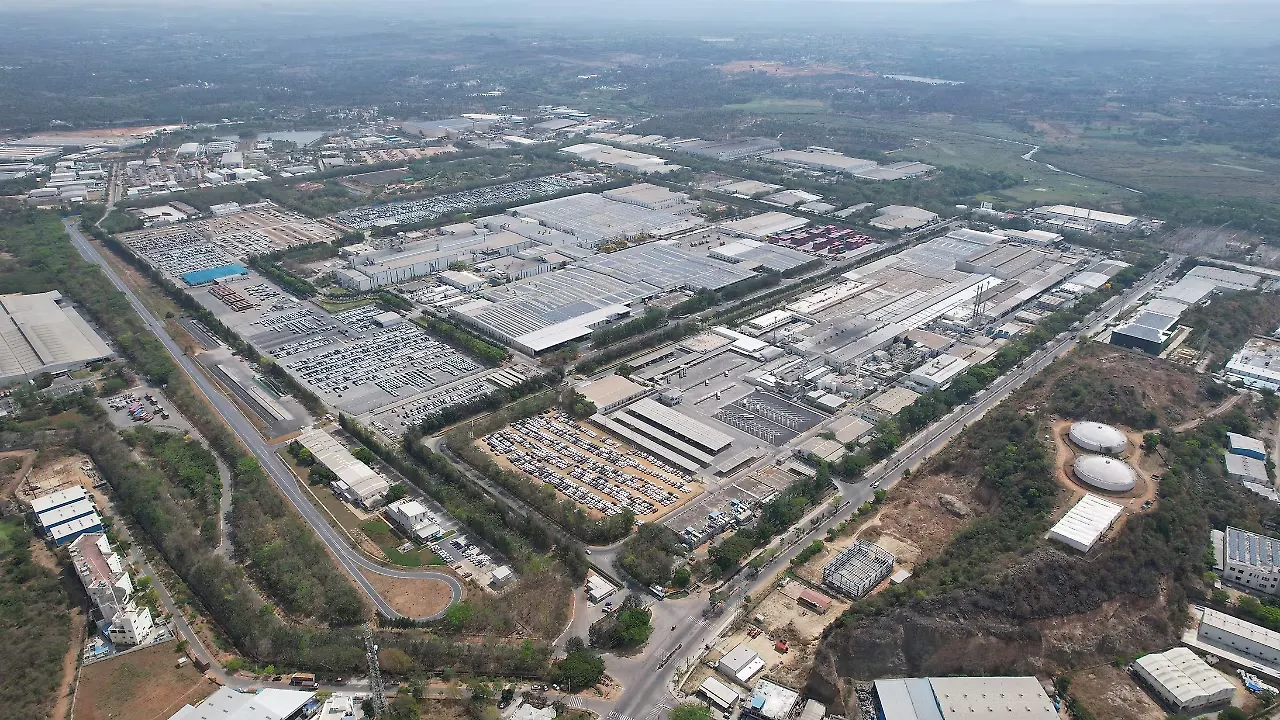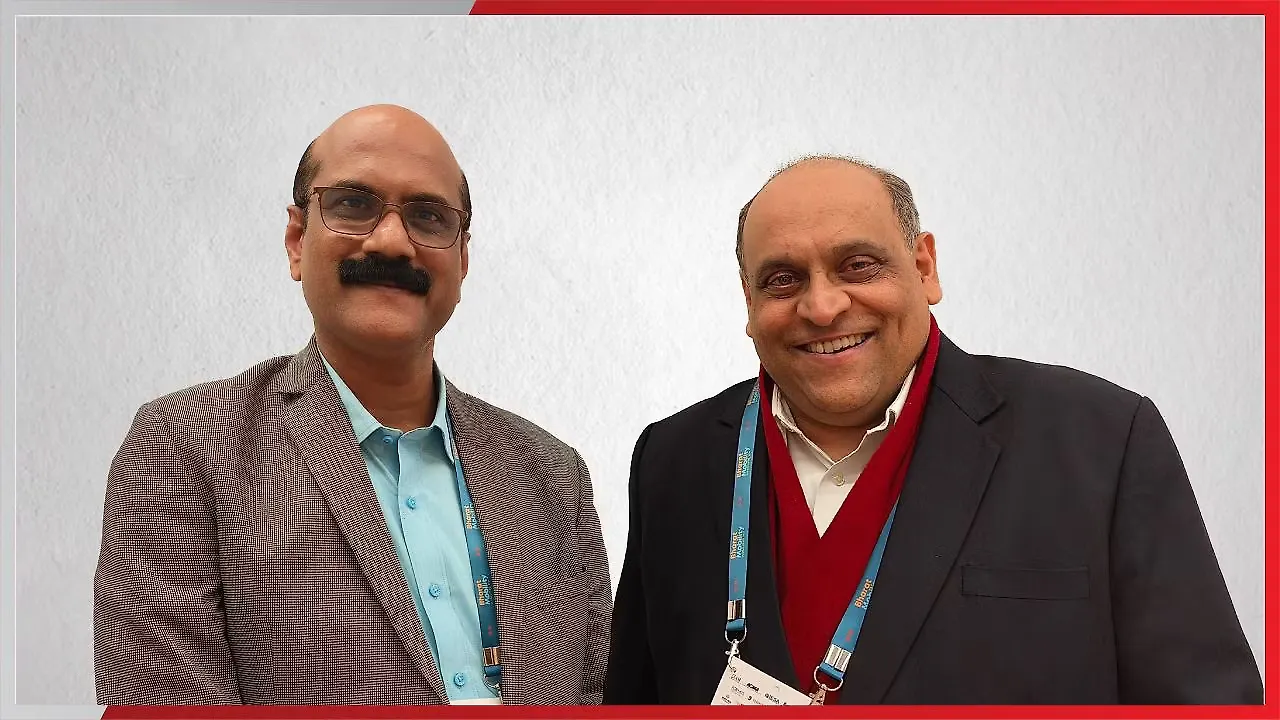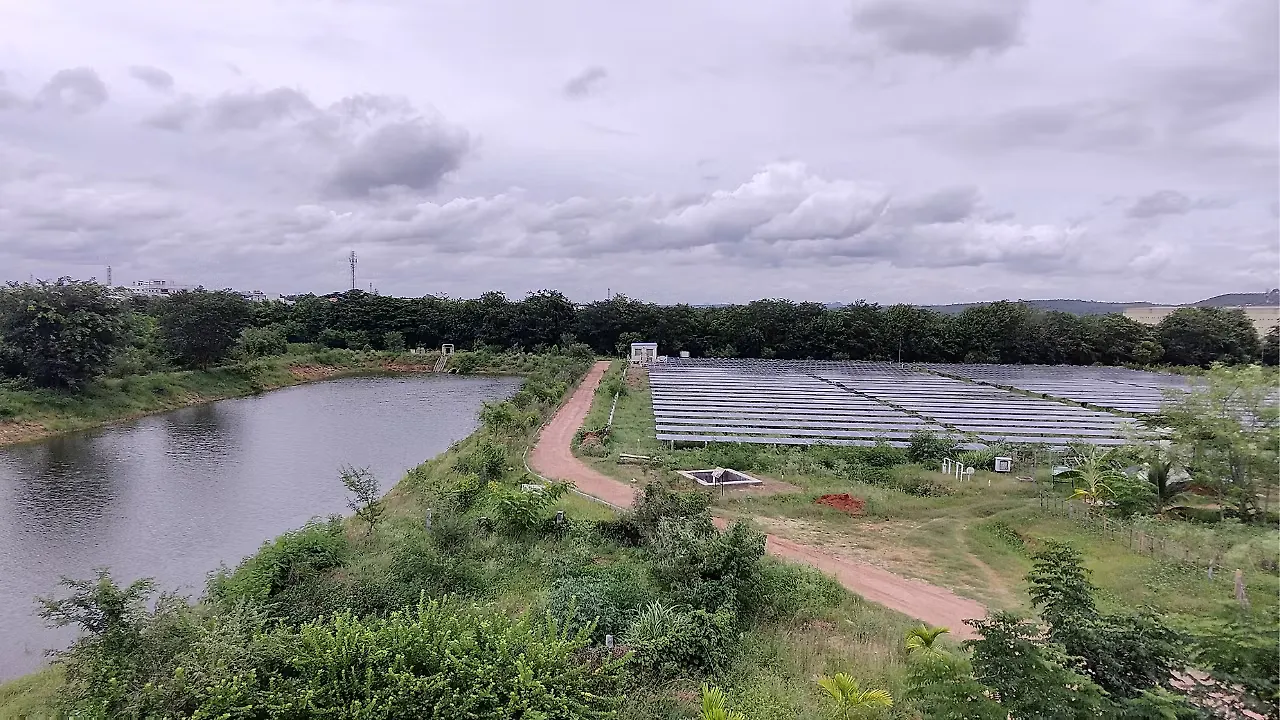
In a significant move towards combating carbon emissions and climate change on an accelerated scale, Toyota Kirloskar Motor (TKM) has been charting its course from conventional tailpipe emissions to pioneering hybrids. The company is also making significant strides in sustainable practices, with its plant now powered by 100% renewable energy for high-tension requirements, coupled with a strong focus on recycling, minimal water usage (limited to 5%), and fostering environmental champions.
In an exclusive conversation with Mobility Outlook, Vikram Gulati, Country Head & Executive VP (Corporate Affairs & Governance), TKM, highlighted the strategic initiatives that form the foundation of this green revolution. 'We firmly believe in our global competitiveness, especially considering the immense and growing market. India stands out as a bright spot among the major global economies. The evolving economic landscape, with discussions about new economic corridors within the country and extending across borders, adds an interesting dimension. While India has always been pivotal for us, its prominence is now reflected in the regional reorganisation, where the country is an integral part of a new region encompassing the Middle-East, Australia, New Zealand, Oceana, and the Far East. This not only opens vast opportunities but also reaffirms our commitment to a sustainable future,' expressed Gulati.

As TKM navigates towards a greener horizon, these initiatives underscore not just an environmental commitment but also position the company strategically in a rapidly evolving automotive landscape, where sustainability and innovation go hand in hand. The journey towards a more sustainable future is not just about reducing carbon footprints; it's about fostering a culture of responsible practices and embracing opportunities that lie ahead, he noted.
Refining the company's vision encapsulated in 'Grow India and Grow with India,' Sudeep S Dalvi, Sr VP & Director, Technical and Purchase at TKM, emphasised that the focus extends beyond just the workforce; it encompasses technological advancements as well. The commitment involves nurturing skills and integrating innovative technologies to bolster the energy mix essential for the nation. Dalvi highlighted, 'Our fundamental approach involves offering customers a variety of energy pathways while simultaneously aligning with the government's strategic initiatives.'
Discussing the company's strategic roadmap, Gulati provided insights into the previously announced investment of INR 4,800 crore, primarily directed towards electrification, with the pivotal inclusion of the e-drive manufactured by TKAP. Another notable investment of INR 3,300 crore has been allocated for the third plant, with a capacity of 100,000 units, thus elevating the total installed capacity to 445,000 units. This surge in investment is a response to the burgeoning demand on the supply side and the imperative need for a synchronised eco-system, he noted.
Gulati emphasised that these initiatives not only signify a financial commitment but also chart the course towards aligning with the Government's objectives of achieving energy self-reliance and CO2 neutrality. He underscored the strategic importance of leveraging India's natural strengths in its energy mix, emphasising the country's abundance of renewable energy sources such as solar and wind. Additionally, he highlighted the immense potential of hydrogen and biofuels like ethanol, presenting them as low-hanging fruits for a swift transition away from fossil fuels. Even E20 will deliver annual savings of INR 50,000 crore of fossil fuel imports and around 10.5 million metric tonne of CO2 emissions. The country has potential even beyond that, he indicated.
The company's focus on building the ecosystem for electrification is evident in its e-drive technology, designed not only for the domestic market but also for global consumption, aligning with the goal of 'Make in India' for international markets. Gulati stressed the equal emphasis on energy efficiency and the exploration of diversified energy sources, aligning with India's unique strengths. These factors will play a pivotal role in shaping the company's forward trajectory, he mentioned.
Moreover, TKM's commitment to sustainability and resource conservation extends beyond its manufacturing operations and dealerships; it encompasses the entire supply chain, including suppliers. The company is actively engaged in a pilot project for waterless service at select service outlets in the country. Once successfully implemented, it will undergo the PDCA cycle – Plan, Do, Check, and Act, a quintessentially Toyota methodology for introducing new processes or products, before being rolled out across its service centres nationwide. The direction is clear as TKM aspires to integrate sustainable practices comprehensively throughout its operational spectrum.
Cultivating Sustainability At Every Level
Dalvi highlighted the company's commitment to instilling a sense of responsibility and environmental consciousness at every level of its operations. The training and awareness initiatives are systematically structured into three phases, commencing with a focus on health, environment, and safety when associates join the organisation. Daily management on environmental KPIs ensures a consistent effort to reduce waste and minimise CO2 emissions through innovative processes, such as Karakuri Kaizen, which optimises machinery with limited automated resources, thereby minimising electricity usage, eventually reducing CO2 emissions.

At a strategic level, a top-down steering committee, led by the Managing Director, ensures that each function, including dealers and suppliers, has defined targets and addresses pertinent issues. This holistic approach underscores the company's commitment to sustainability across its entire ecosystem.
Empowering Young Minds
In an endeavor to shape young minds into catalysts for environmental change, TKM has initiated various programmes for children, including educational visits to its eco park. One notable initiative, the ABCD programme (A Behavioral Change Demonstration), based on a Harvard case study, empowered children to play a pivotal role in making the Ramanagara district defecation-free. This initiative not only transformed the landscape but also served as a valuable lesson in making children the harbingers of positive environmental change.
Furthermore, TKM champions a robust employee volunteering programme with a dedicated focus on the environment as one of its thematic areas. This aligns with the company's CSR objectives, emphasising the importance of fostering a sustainable future through concerted efforts at both organisational and community levels.
Journey Thus Far
Reflecting on the journey of the past 25 years, TKM has been steadily moving towards self-reliance, achieving a localisation level exceeding 87% in its mainline products. This localisation journey extends to the production of engines, transmissions, and the groundbreaking development of e-drivers—the crucial component of the electric powertrain. Notably, these e-drivers are now manufactured in India, marking a significant milestone as the first-time production outside Japan. These Indian-made components are exported back to Japan with a localisation level of up to 62%, a feat set to be officially recognised under the Production Linked Incentive (PLI) scheme.
The commitment to localisation extends across various components, with transmissions achieving a 89% localisation rate. Furthermore, over 92% of the steel used in its vehicles is sourced locally, showcasing a dedicated effort to leverage local suppliers, resources, and integrate competitive technologies seamlessly. This not only strengthens the ecosystem but also contributes to the resilience of the supply chain.
Exports Surge
In CY23, TKM witnessed a notable surge in exports, with 15,508 fully built units making their way to international markets. The momentum continued into FY24, where during April to December, TKM exported 11,990 units, reflecting a robust international presence. Over the last 12 years, exports have grown exponentially, experiencing a remarkable 20-fold increase with a cumulative value surpassing INR 1,800 crore.
Beyond production, TKM has played a pivotal role in skill development, having trained over one lakh individuals. Looking ahead, the company has set an ambitious goal to skill approximately five lakh people by 2030, spanning not only manufacturing but also service sectors. In doing so, the company continues to contribute not only to the automotive landscape but also to the broader socio-economic fabric of the country. As Vikram Gulati aptly concludes, this journey signifies a commitment to self-reliance, technological prowess, and the empowerment of a skilled workforce for the years to come.
Also Read: